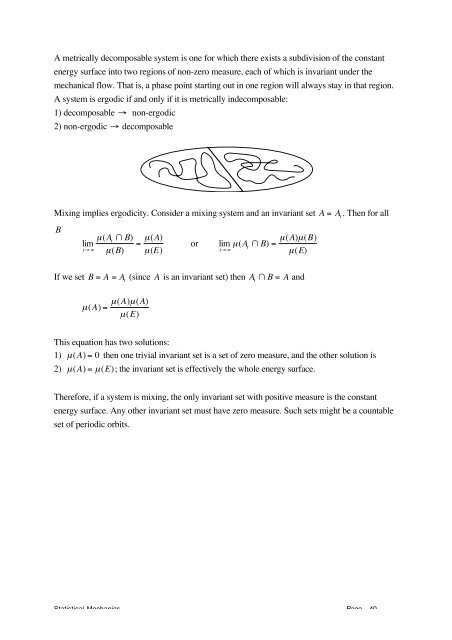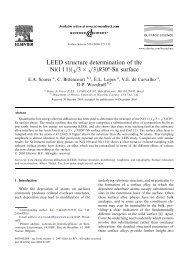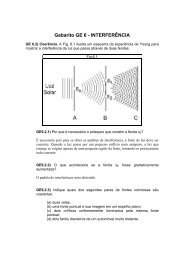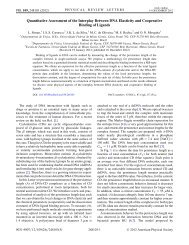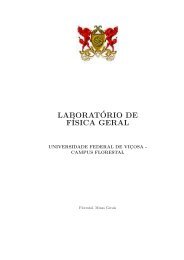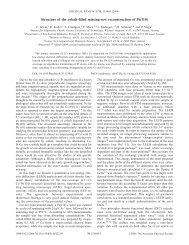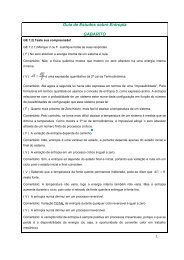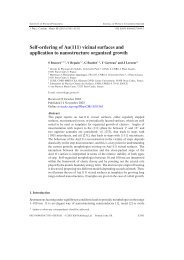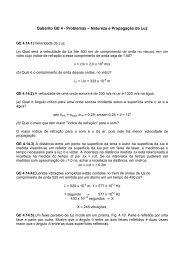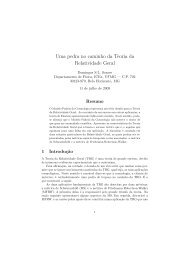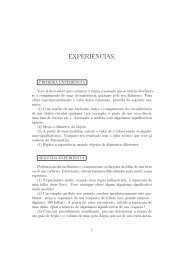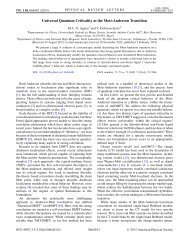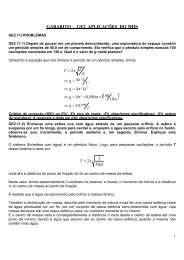Fundamental Statistical Mechanics
Fundamental Statistical Mechanics
Fundamental Statistical Mechanics
You also want an ePaper? Increase the reach of your titles
YUMPU automatically turns print PDFs into web optimized ePapers that Google loves.
A metrically decomposable system is one for which there exists a subdivision of the constant<br />
energy surface into two regions of non-zero measure, each of which is invariant under the<br />
mechanical flow. That is, a phase point starting out in one region will always stay in that region.<br />
A system is ergodic if and only if it is metrically indecomposable:<br />
1) decomposable → non-ergodic<br />
2) non-ergodic → decomposable<br />
Mixing implies ergodicity. Consider a mixing system and an invariant set A = A t . Then for all<br />
B<br />
µ(A t ∩ B)<br />
lim =<br />
t→∞ µ(B)<br />
µ(A)<br />
µ(E)<br />
or lim<br />
t→∞ µ(A t ∩ B) = µ(A)µ(B)<br />
µ(E)<br />
If we set B = A = A t (since A is an invariant set) then A t ∩ B = A and<br />
µ(A) = µ(A)µ(A)<br />
µ(E)<br />
This equation has two solutions:<br />
1) µ(A) = 0 then one trivial invariant set is a set of zero measure, and the other solution is<br />
2) µ(A) = µ(E); the invariant set is effectively the whole energy surface.<br />
Therefore, if a system is mixing, the only invariant set with positive measure is the constant<br />
energy surface. Any other invariant set must have zero measure. Such sets might be a countable<br />
set of periodic orbits.<br />
<strong>Statistical</strong> <strong>Mechanics</strong> Page 40


